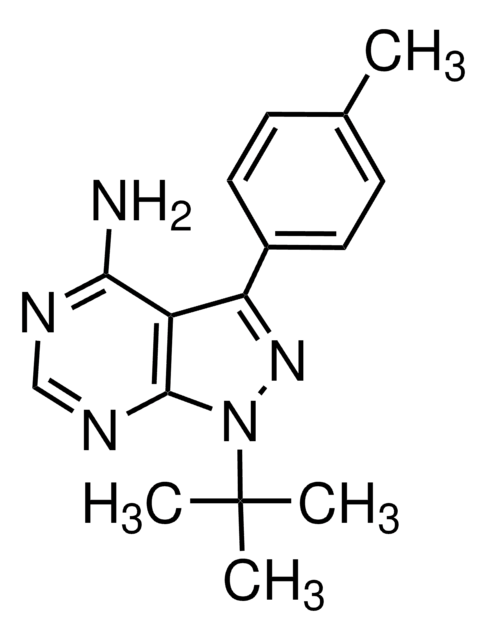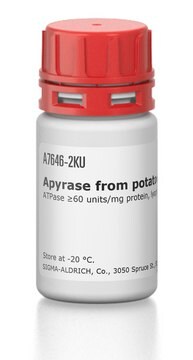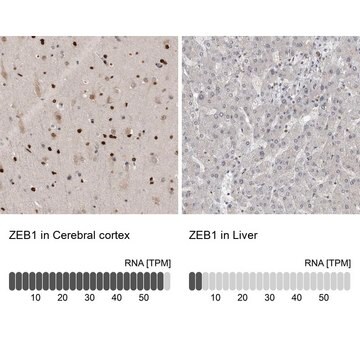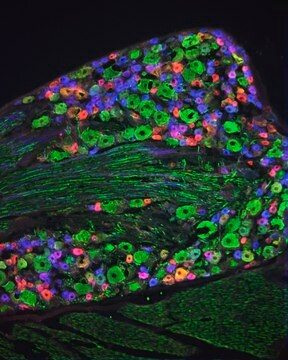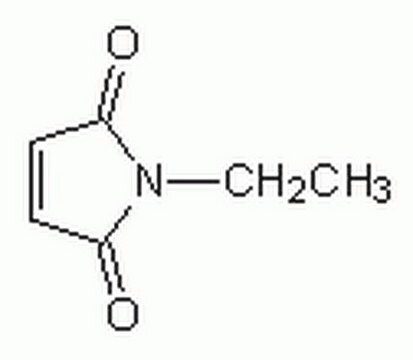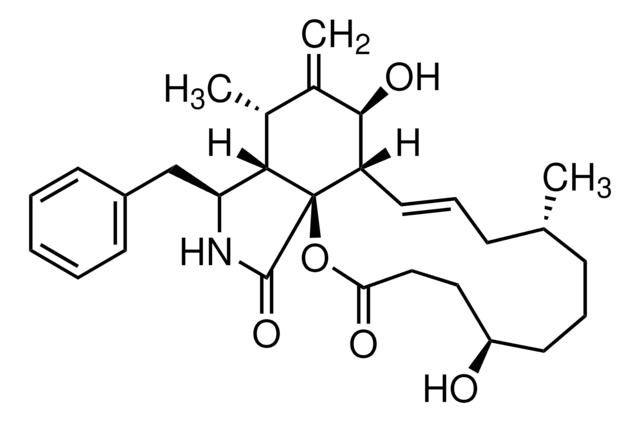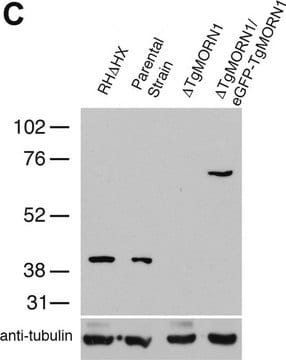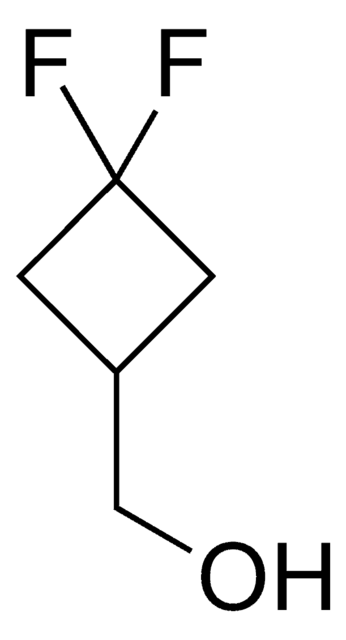529581
1NM-PP1
≥95% (HPLC), solid, PP1 analog, Calbiochem®
Synonym(s):
PP1 Analog II, 1NM-PP1, Mutant Kinases Inhibitor II, 4-Amino-1- tert-butyl-3-(1ʹ-naphthylmethyl)pyrazolo[3,4-d]pyrimidine, NM
About This Item
Recommended Products
Product Name
PP1 Analog II, 1NM-PP1, PP1 Analog II, CAS 221244-14-0, is a cell-permeable PP1 analog that acts as a potent, reversible, selective, ATP-competitive inhibitor of mutant over wild-type kinases.
Quality Level
Assay
≥95% (HPLC)
form
solid
manufacturer/tradename
Calbiochem®
storage condition
OK to freeze
protect from light
color
white
solubility
DMSO: 5 mg/mL
shipped in
ambient
storage temp.
2-8°C
SMILES string
[n]1(nc(c4c1ncnc4N)Cc2c3c(ccc2)cccc3)C(C)(C)C
InChI
1S/C20H21N5/c1-20(2,3)25-19-17(18(21)22-12-23-19)16(24-25)11-14-9-6-8-13-7-4-5-10-15(13)14/h4-10,12H,11H2,1-3H3,(H2,21,22,23)
InChI key
GDQXJQSQYMMKRA-UHFFFAOYSA-N
General description
Biochem/physiol Actions
T339G
Packaging
Warning
Reconstitution
Other Notes
Papa, F.R., et al. 2003. Science302, 1533.
Bishop, A.C., et al. 2000. Nature407, 395.
Weiss, E.L., et al. 2000. Nat. Cell Biol.2, 677.
Bishop, A.C., et al. 1999. J. Am. Chem. Soc.121, 627.
Legal Information
Storage Class Code
11 - Combustible Solids
WGK
WGK 1
Certificates of Analysis (COA)
Search for Certificates of Analysis (COA) by entering the products Lot/Batch Number. Lot and Batch Numbers can be found on a product’s label following the words ‘Lot’ or ‘Batch’.
Already Own This Product?
Find documentation for the products that you have recently purchased in the Document Library.
Our team of scientists has experience in all areas of research including Life Science, Material Science, Chemical Synthesis, Chromatography, Analytical and many others.
Contact Technical Service